Syrian Voices Refuse to Die Down

(Image Credit: Dana A. Shams, Gulf News)
By Ramzy Baroud
As the Baath regime attempts to quell an unprecedented popular uprising in Syria, it is doing so with a level of brutality that has far surpassed other Arab revolutions (with the exception of Libya). The barbarism of its response has characteristics of Israel’s cruelty in Gaza, Muammar Gaddafi’s disregard for civilian lives in Libya, and Hosni Mubarak’s patronising political attitude in Egypt.
The Syrian uprising was sparked by the arrest of 15 children, who wrote on a wall: ‘The people want the regime to fall’. Through the government’s harsh reaction to the seemingly innocuous action, and its atrocious crackdown on subsequent protests, the Syrian people were being delivered a strong message: ‘Syria is not Egypt, Tunisia or Libya’.
This rhetoric has been employed by other Arab leaders in recent months. ‘Egypt is not Tunisia’, repeated the apologists of the former Mubarak regime. ‘Libya is not Egypt or Tunisia’, Gaddafi’s son Saif Al Islam parroted. However, the doublespeak and hypocrisy of the Syrian regime’s political discourse has exceeded all others. President Bashar Al Assad continues to use revolutionary, even progressive rhetoric, borrowed mostly from the heyday of Arab socialism in the 1960s and 70s. At the same time, the behaviour of his army remains regressive and anti-revolutionary.
The moral inconsistency of the president in his 11-year rule doesn’t venture far from that of his father, Hafez Al Assad, who ruled Syria for 30 years following his self-styled socialist revolution in 1970. In actual fact, Syria’s ‘socialism’ was hardly socialism at all. It was a family affair based on self-serving alliances and aimed at sectarian domination. Since the instituting of the 1963 Emergency Law, Syrians have subsisted in one of the least politically tolerant environments in the region.
To legitimise its iron-fisted rule, the Baath regime took on the role of guardian against Israel’s colonial ambitions. Yet, despite Israel’s illegal occupation and annexation of Syria’s Golan Heights (a flagrant violation of international law), a status quo has prevailed. Israel continues to occupy the Golan, and Syria continues to present this conflict as an obstacle against serious reforms in the country.
While Israel continues to exploit Syria’s misfortunes, the regime continues to kill Syrians with seeming impunity. The ongoing uprising has killed more than 1,700 people and wounded over 20,000, rights groups say.
Hafez Al Assad was credited with crushing the popular uprising in the city of Hama in 1982. The estimates of those killed by government forces range between 10,000 and 40,000. The lack of an international outcry to the genocidal act could be attributed to the fact that the victims were mostly Sunnis, and their rebellion was associated with the Muslim Brotherhood.
Still, Syria does have genuine enemies in Israel and the US. The reasons behind the animosity have nothing to do with the regime’s human rights record, and everything to do with ensuring Israel’s political and military dominance in the region.
While the Al Assads’ revolutionary rhetoric was intended for public consumption, their regimes strove to demonstrate their viability to the US. But despite Syria’s visible involvement in torture as part of the CIA’s global abduction operation of suspected terrorists (known as ‘extraordinary rendition’), and its enthusiastic cooperation in the ‘war on terror’, the country has remained a constant target for Israel and the US.
The Israeli government had been genuinely frustrated when the US failed to target Syria during its regime change frenzy following the 2003 invasion of Iraq. After all, Israel’s faithful neoconservative friends had made ‘containing Syria’ a paramount objective of their 1996 policy paper.
Entitled ‘A Clean Break: A New Strategy for Securing the Realm’, the document was written to help Prime Minister Benjamin Netanyahu in his efforts to suppress his regional foes. It stated that, "given the nature of the regime in Damascus, it is both natural and moral that Israel abandon the slogan ‘comprehensive peace’ and move to contain Syria, drawing attention to its weapons of mass destruction programme, and rejecting ‘land for peace’ deals on the Golan Heights".
Moreover, Syria has fallen in the range of US-Israeli fire on more than one occasion. The so-called Operation Orchard was an Israeli air strike with a US green light. It targeted an alleged nuclear reactor in Deir Al Zor region in September 2007, and an American airborne assault against a peaceful Syrian village in October 2008.
The Syrian response to both attacks was moot. The harshest may have been the closure of an American school and a cultural centre. Syria opted to pursue matters via diplomatic channels, although neither Israel nor the US took any notice.
While the Syrian army seemed completely ineffective in preventing such humiliating attacks, it was ready and willing to crack down on civilian protests mobilising for democracy and social justice. Ironically, one of the regions that paid a high price for the peaceful protests was also Deir Al Zor.
The new battleground for the army and security forces — including what Syrian rights activists refer to as the death squads — were distant villages, small countryside towns, and large cities. The scene is really that of war, only with one side armed with tanks, and the other with placards.
Oblivious to the mockery, the Al Assad regime continues to speak of change and reforms, while its army commits unspeakable atrocities against civilians. Its shoot-to-kill policy was met with muted international response and near complete silence by Arab governments.
However, the Syrian regime’s violence is also met with the thundering voices of the Syrian people. Their courage will go down in history as the stuff of legend, as will their looming victory.
– Ramzy Baroud is an internationally-syndicated columnist and the editor of PalestineChronicle.com. His latest book is My Father Was a Freedom Fighter: Gaza’s Untold Story.


















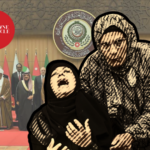
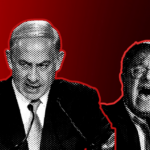
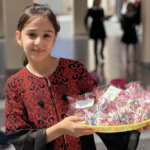
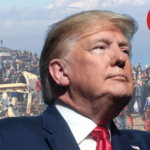
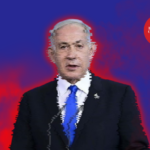
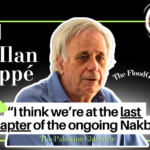
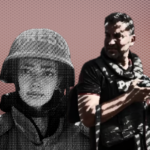
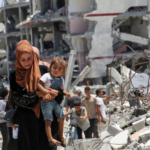









0 Comments